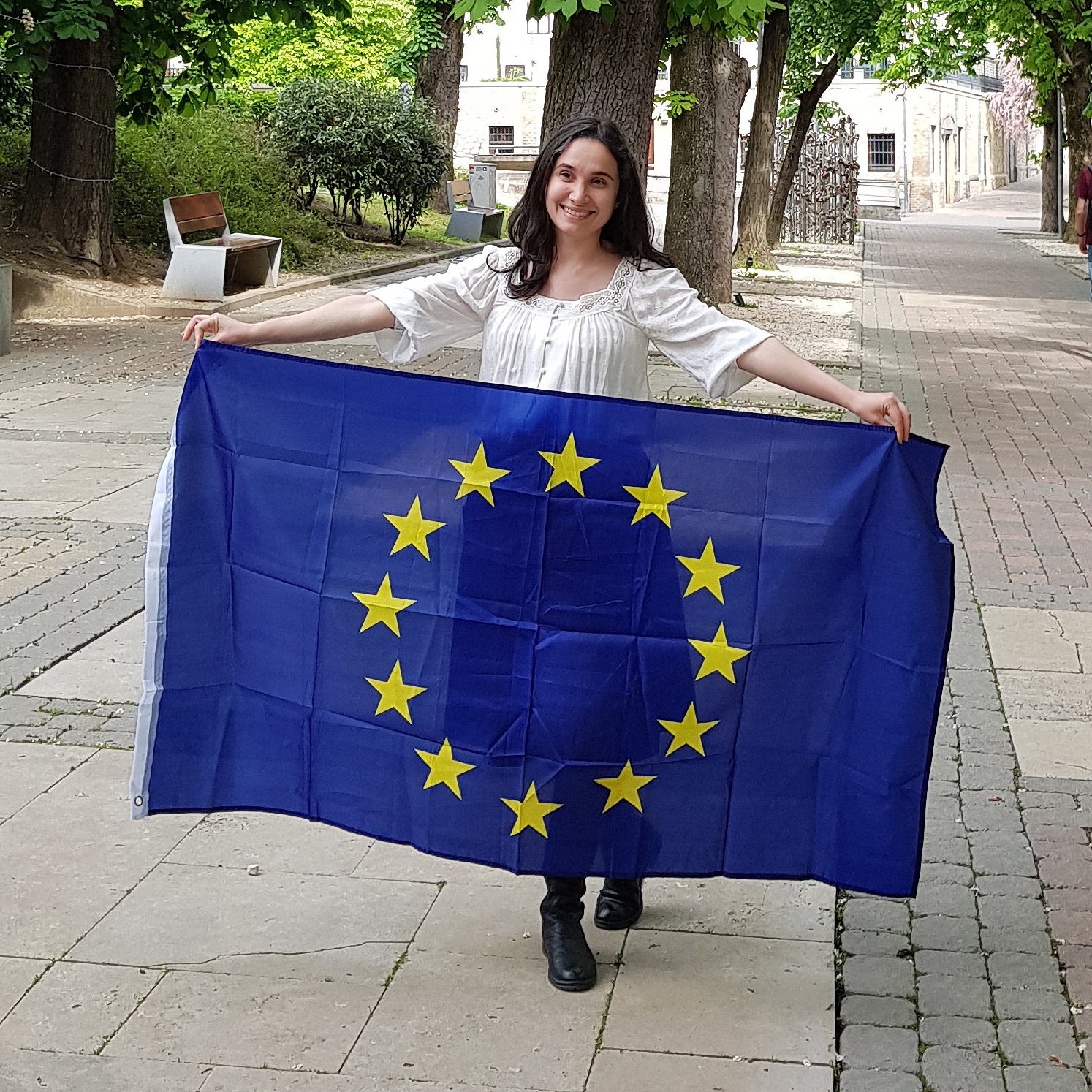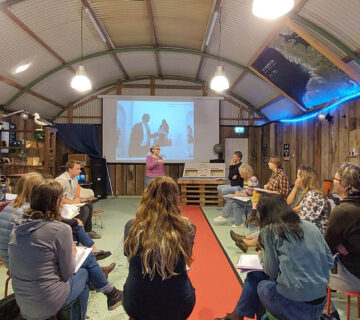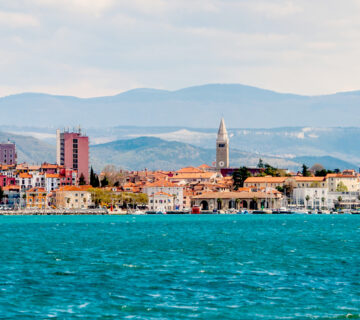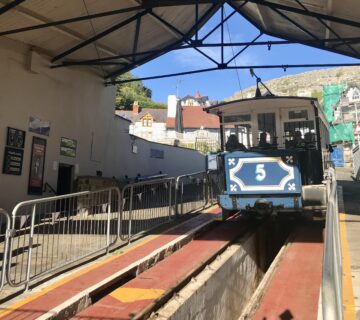About what is discussed at the European stage and what is the future role of interpretation.
These lines contain some thoughts about the questions and concerns related to the most recent developments in heritage that started occupying my head after the two most recent events I was invited to as an IE representative to give a keynote. Naturally, a keynote needs to provide some strong ideas, a vision for the sector and some positive encouragement for the listeners. However, I can well imagine that some listeners of my speeches felt puzzled or even annoyed. I catch myself too, in doubt whether our high-flying vision might be too demanding, or too abstract to be easily translated into practical solutions, too conflicting with current structures and processes, or even too conflicting with prevailing ideas around the roles of heritage or heritage experts?
On these pages we have already spilled quite some ink sharing vision and ideas about the development of the interpretive profession and value-based interpretation, however, I’d like to share some very concrete quotes for you to contemplate with me. What is it about? I will get to that soon, but I’m impatient and thrilled to first share the news about the two events that are signs of a new development.
The first event – International seminar on heritage interpretation happened in the Museum of Józef Piłsudski in Sulejówek (Poland). The interesting fact is that the event closed the Erasmus+ project in which 30 employees of the same museum were trained and most of them also gained IE certified status for interpretive guiding and writing. This makes the museum as an institution quite unique in its field. A public organisation that is implementing interpretation systematically across their structures, designing their future development around it, and even actively promoting it to the sector, is well worthy of IE’s support and visibility. We’re looking forward to hearing about the actual effects and visitor feedback from them in future.
The second event was the closing of a COST Action project – Underground4Value – in Brussels, led by the CRN in which partners co-developed a toolkit for community heritage valorisation. During the project they have come across various approaches, among them also with Interpret Europe and interpretation as a discipline that can clearly complement their endeavours in future.
These are all positive developments for IE and in my speeches I shared with them some lines from the related international conventions and papers that outline the changing paradigm in culture, in which the heritage sector (not only cultural) could hopefully finally recognise an important role interpretation plays in fulfilling the international policies’ agenda.
The first paper is the Faro Convention (COE, 2005) according to which:
- Cultural heritage should help “…in the construction of a peaceful and democratic society, and in the process of sustainable development and in promotion of cultural diversity”.
- Besides people, increasingly important is becoming the role of human values in heritage. In particular European founding values.
- What is even more important for us interpreters is clause II / 7 / d: signatory states should “integrate these approaches into all aspects of lifelong education and training”. (Heritage interpretation IS a structured approach to non-formal learning, so in theory, interpretation should systematically include human values in communication and content with the goal to build peace and democracy, to promote cultural diversity.)
- Further, the Faro Convention suggests that cultural heritage should be included in all levels of education, “not necessarily as a subject of study in its own right, but as a fertile source for studies in other subjects.” (We can understand this in a way that we interpret heritage not only because of heritage itself, but with an aim to open up discussions about other subjects, such as sustainability, justice, peace and other critical issues of our time.)
The heritage and cultural sector is, furthermore, called ‘to a concerted action’ by the European Commission (Stormy Times, 2022) towards sustainability, climate change and social justice along with all other sectors, mobilising all resources.
The Stormy Times report suggests:
- “Green deal challenges Europeans to change the way they live and think”. The report Stormy Times calls for artists and cultural organisations to play a full part in this transformational cultural change.
- “…Fact based communication is obviously not enough to mobilise energies and courage for change.”
- 7Rs: Rethink, Reduce, Repair, Reuse, Refurbish, Recycle, and Recover. (RETHINK is the first R in the row)
- “It is culture that gives man the ability to reflect upon himself”. (We couldn’t agree more, heritage interpretation should encourage reflection of people upon their lifestyles. I believe the cultural and natural sites, as non-formal learning settings, can offer food for thought by creating meaningful experiences.
Furthermore, the Climate Heritage Network, in which Interpret Europe takes part, is gearing up for the UN Conference of the Parties (COP28) that will take place in December 2023, to achieve that “mainstreaming art, culture, and heritage perspectives into international climate change policy would support local cultural-based climate action by helping to deliver policy and funding frameworks that valorise this work.”
So where are we interpreters in this story?
The general challenge I see is (as usual) in the bottleneck between policies and practice. If we want to be up to date with the current discourse in heritage, if for nothing else, to be successful in applications for European funding, we should be perceptible for new ideas. However, many European projects have questionable results on the ground and interpretation services are often remaining of a shy face somewhere in the average still predominantly following the “teaching endgame” as Sam Ham called it and the latest design practices. Are we doing enough? Where is our passion for the ‘provocation’ approach? Are we doing everything to evolve to our maximum of creativity and boldness without compromising on scientific truth? I believe heritage interpretation offers sufficient knowledge and skills to bring into practice these high-flying ideals. Nevertheless, our ongoing collaboration with UNESCO has already resulted in the acknowledgement of value-based interpretation as a valuable approach to achieving UNESCO mission at World Heritage Sites. This gives us enough wind in our backs.
The question is whether interpreters are ready to follow international policies and conventions.
I think my concerns will not calm down until Interpret Europe mobilises examples and case studies that can serve as inspiration, and we have built enough trust that we do represent the best practice. I’d be most thrilled to proclaim that what we teach and preach, ‘our’ interpreters also practice!
Yes, changes don’t happen overnight and people also don’t change from one day to another. We need to accept that it will take time. Both, for interpretation practice to improve its own approaches as well as for society to transform itself towards sustainability. However, it is time to act and work together. Like the Croatian and Polish partners on the Erasmus+ project.
IE is a forum, a place for exchange and mutual learning. The first step should be to share ideas and good practice examples on how you managed to engage communities on the highest level of the participation scale, how you managed to negotiate a value-based approach at your institution, what are your ideas about sustainability experience design?
We’ll also try to get financial means and pilot test some ideas, but hey, colleagues out there! If you work on an interpretation project that can really be a good example of inclusion, sustainability interpretation (not education!), climate change interpretation and social justice interpretation, please come forward!
We can give you a floor at one of our webinar sessions, or save your ammunition for next year’s conference, Sustainability: Challenging mindsets through heritage interpretation. The call for papers is out and we are ready. Don’t wait!
Helena Vičič is IE’s Managing Director. She can be contacted at: helena.vicic@interpret-europe.net.
To cite this article: Vičič , Helena (2023) ‘Are heritage experts challenged?‘in Interpret Europe Newsletter 3-2023, pg. 4-5.
Available online: https://interpret-europe.net/wp-content/uploads/2023/10/PDF-Newsletter-2023_3-autumn.pdf




